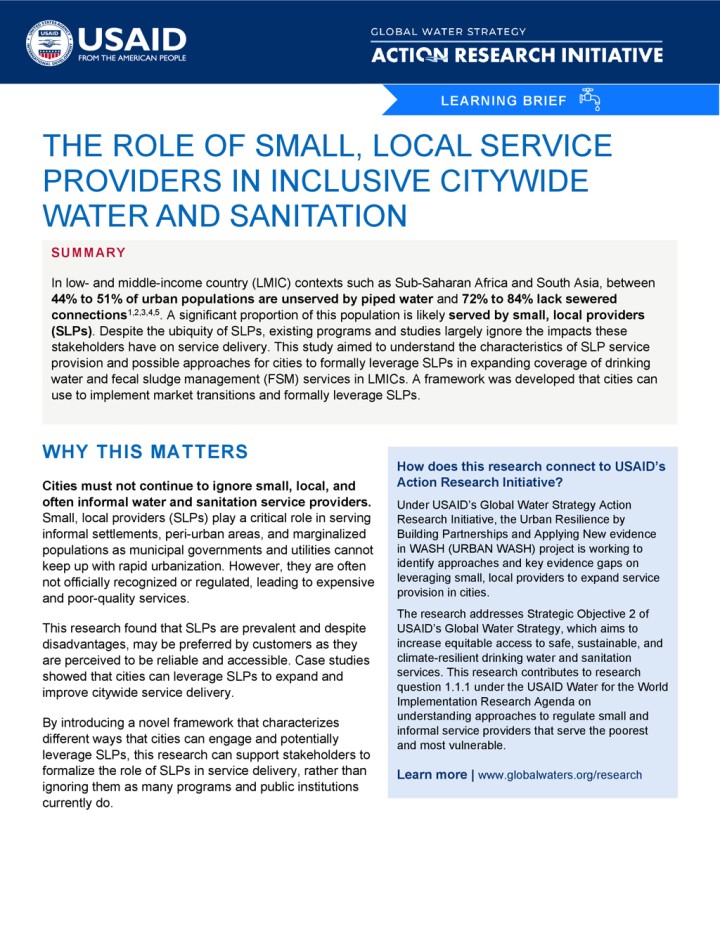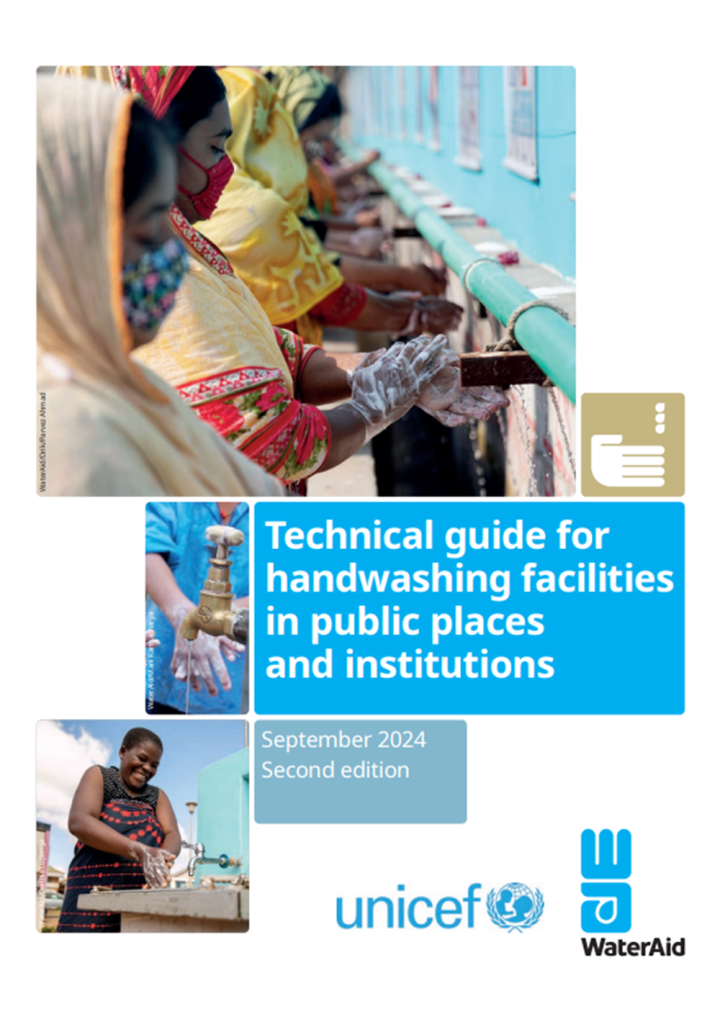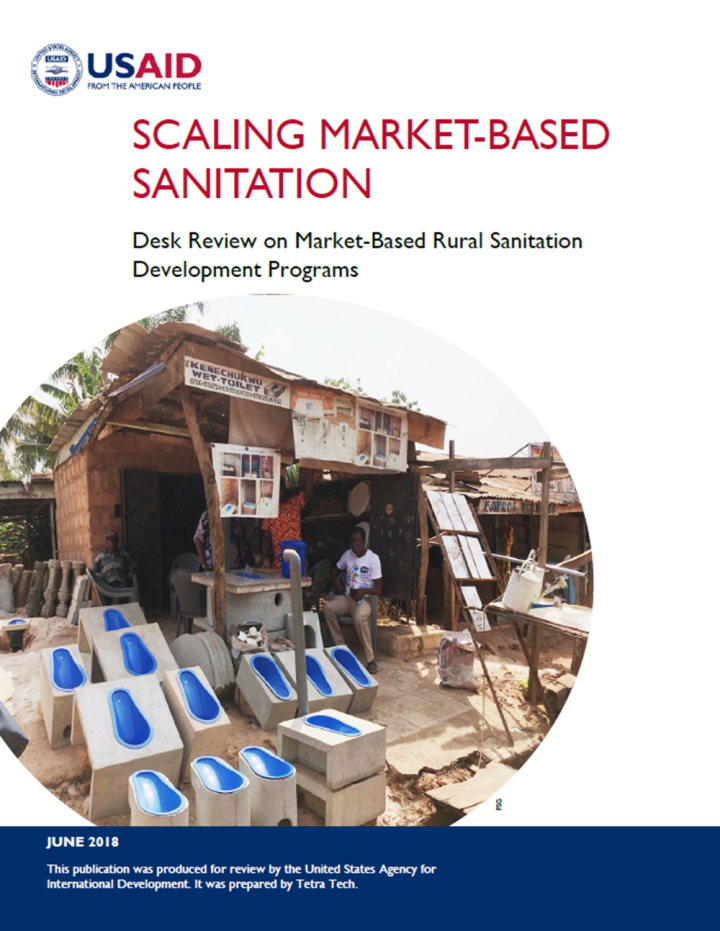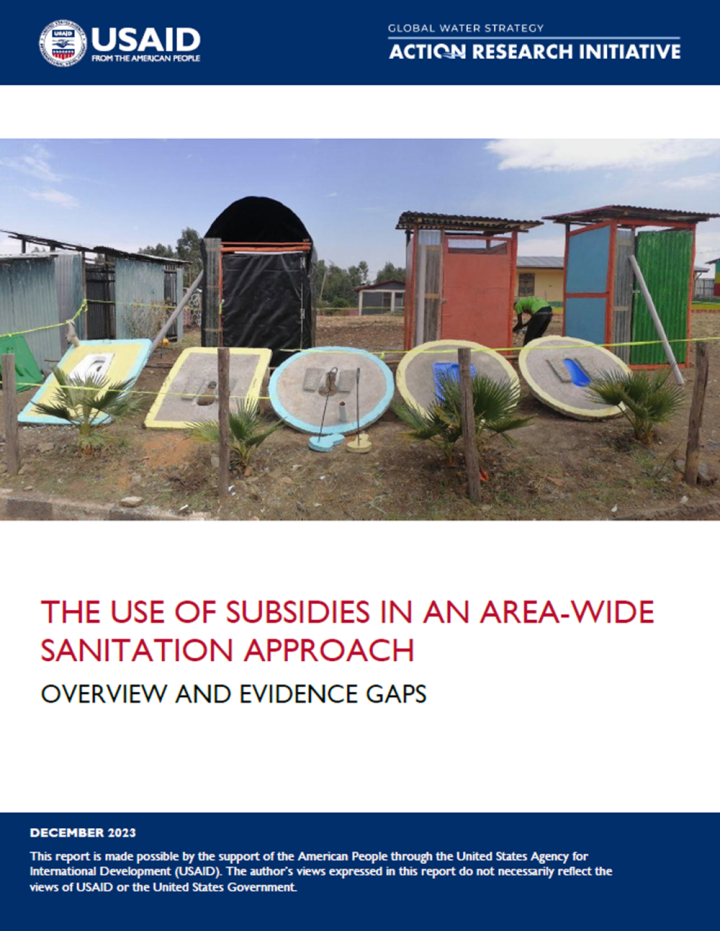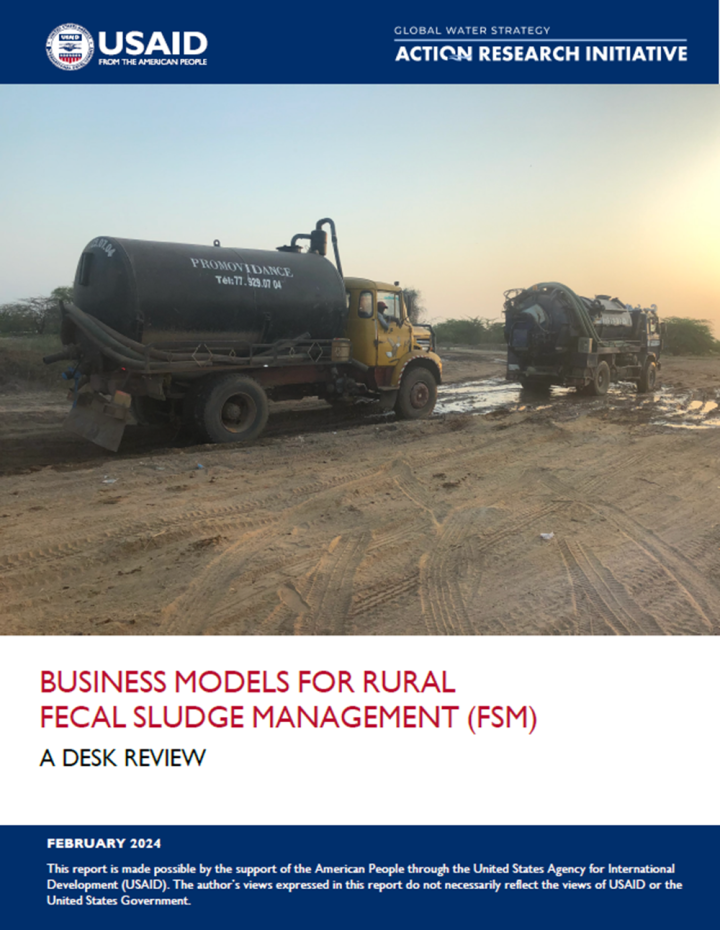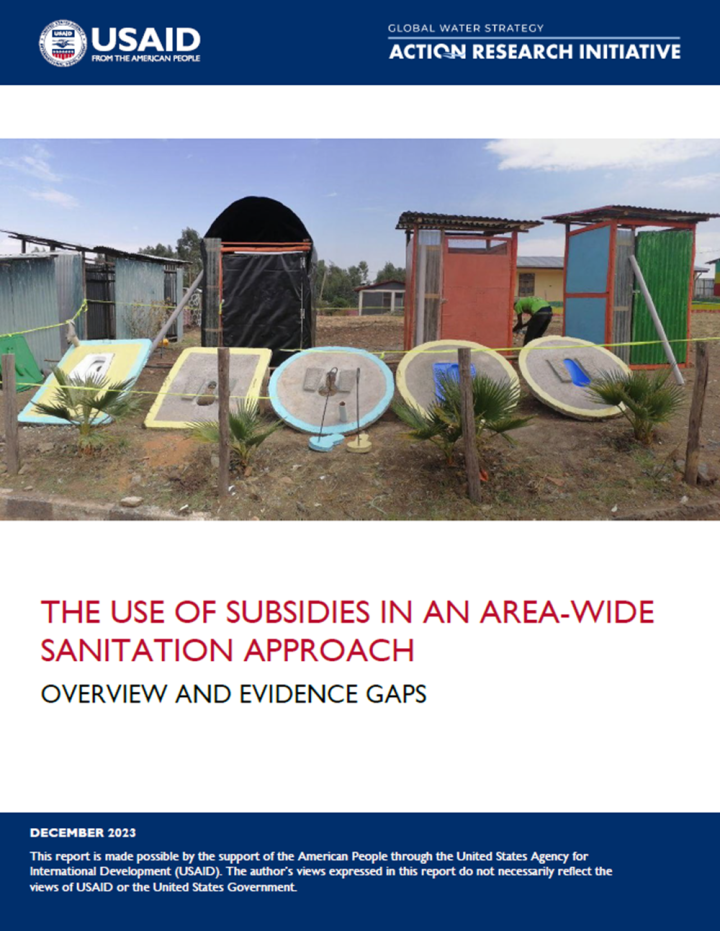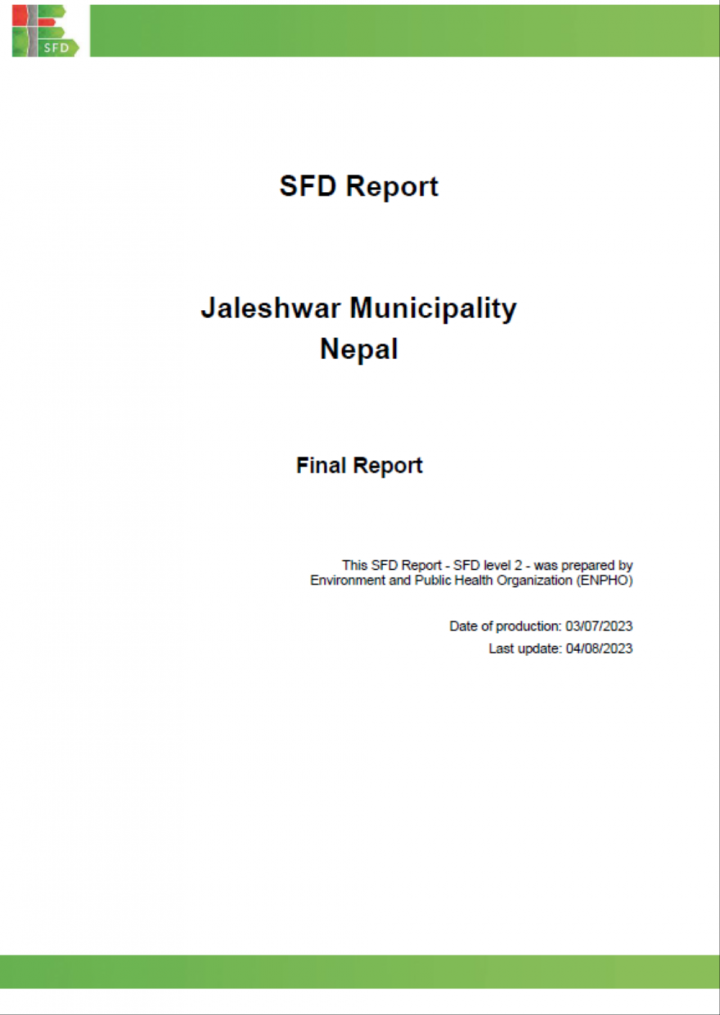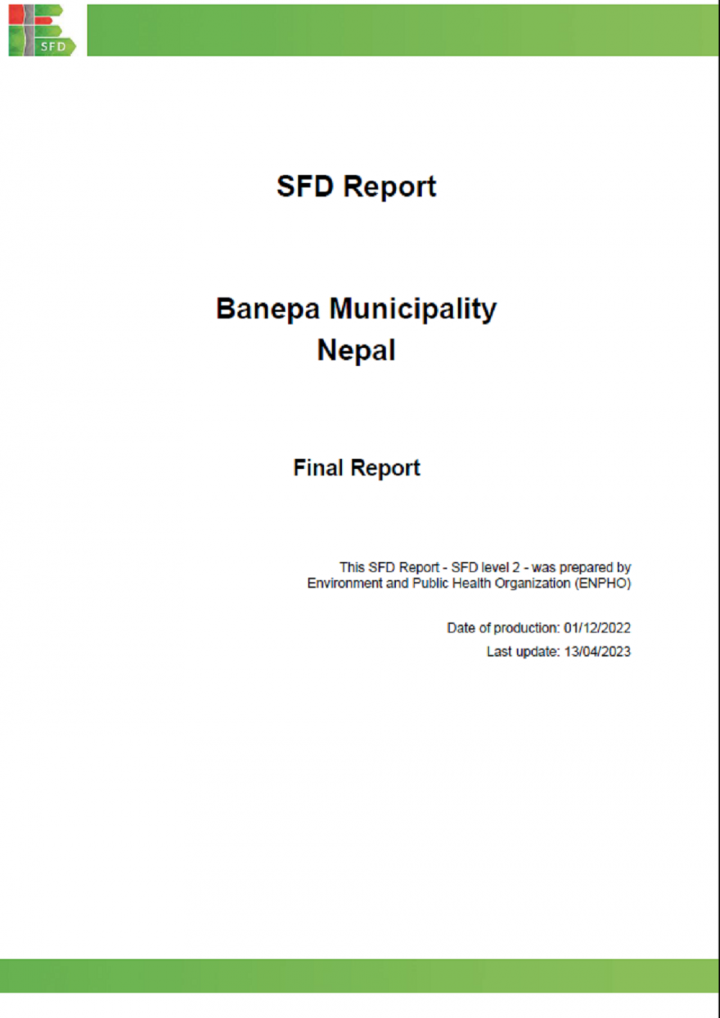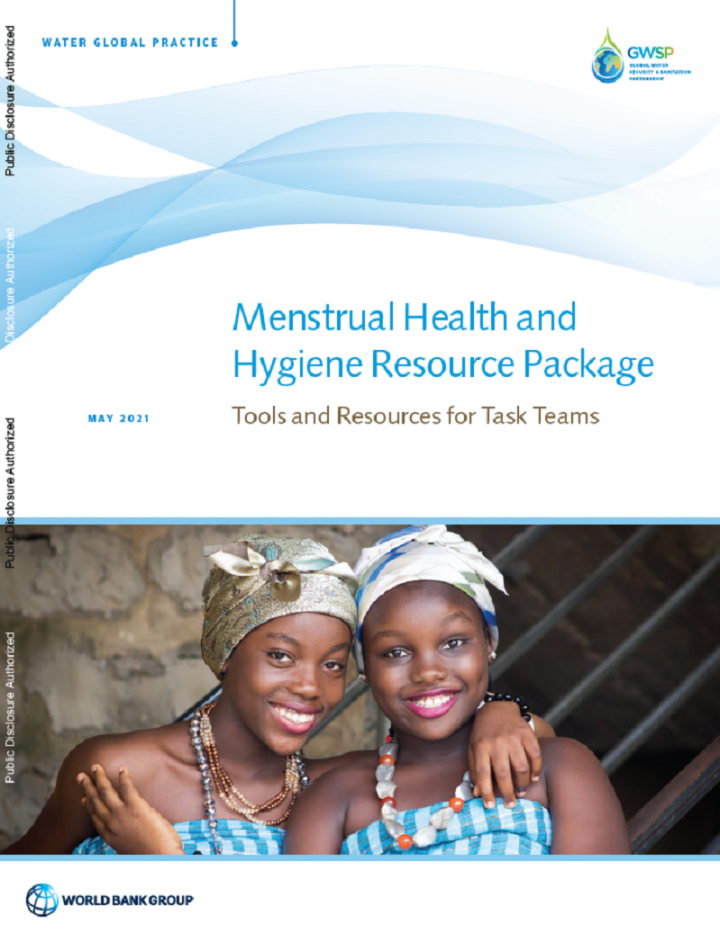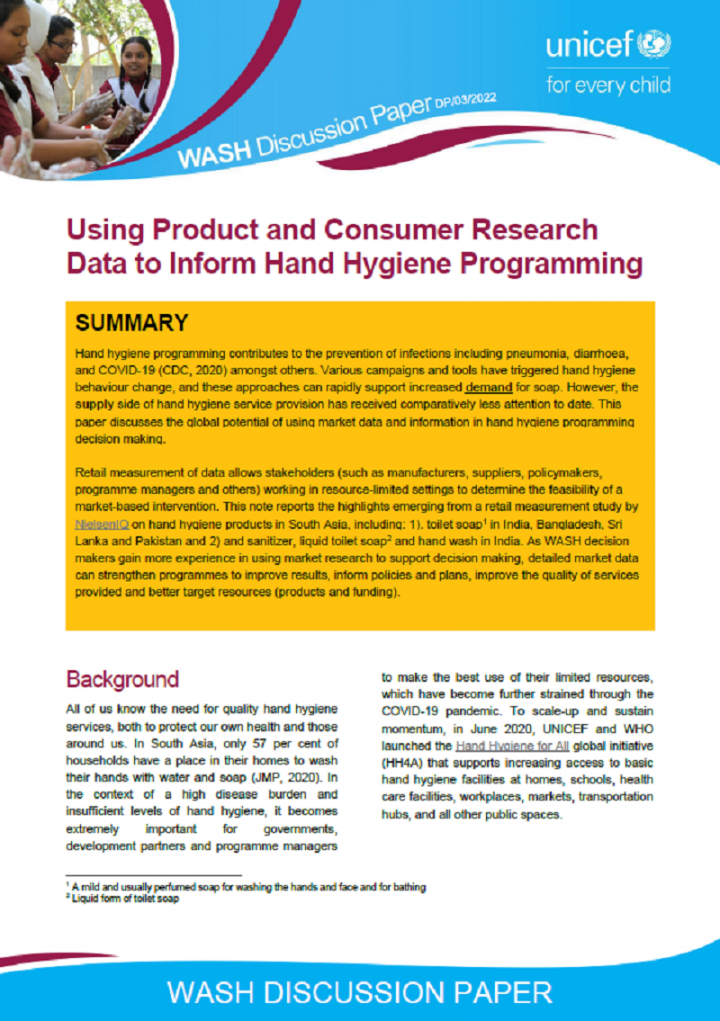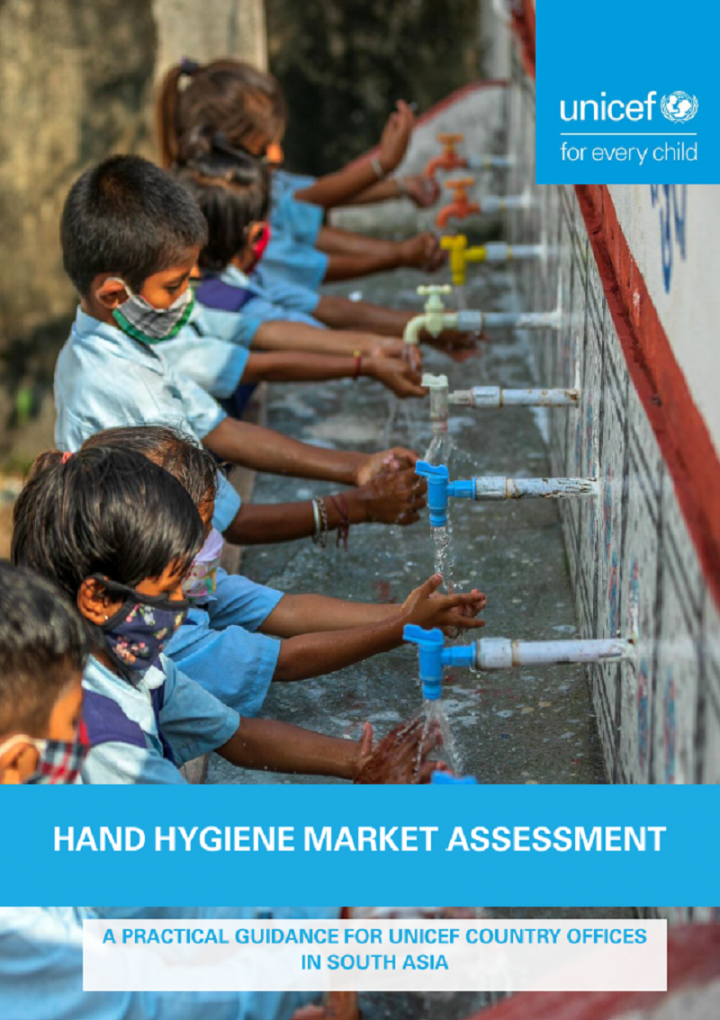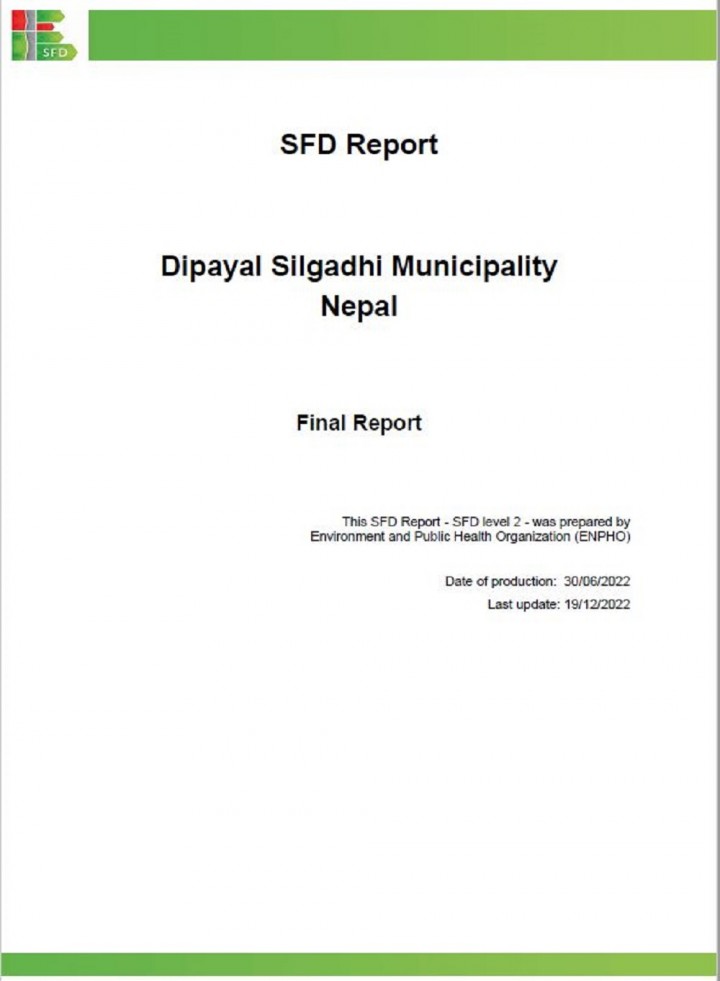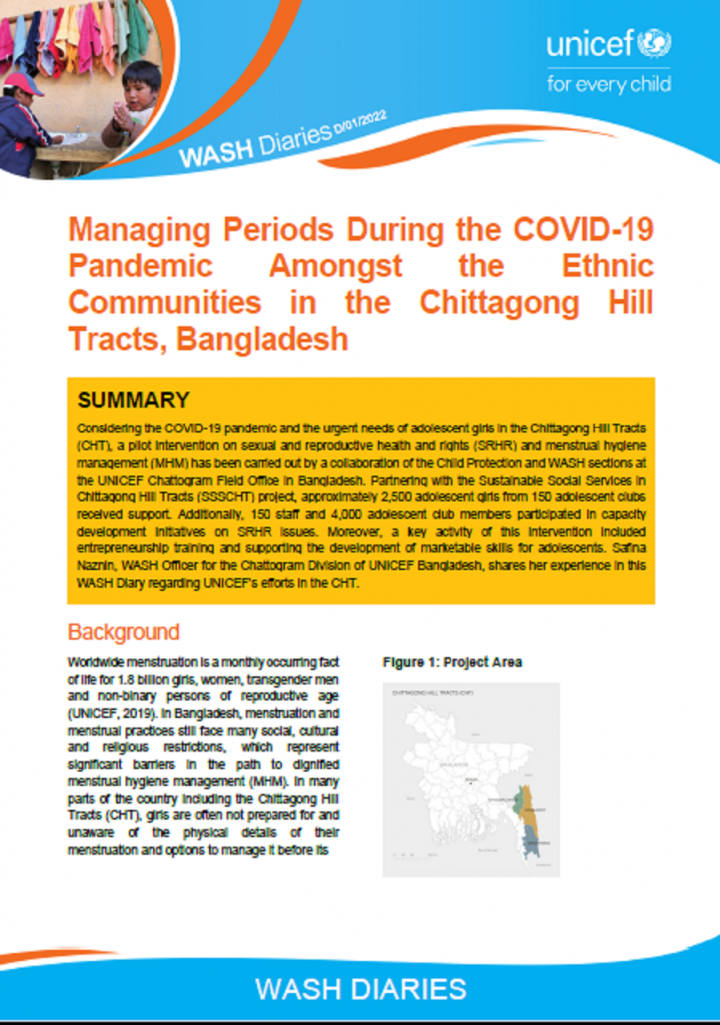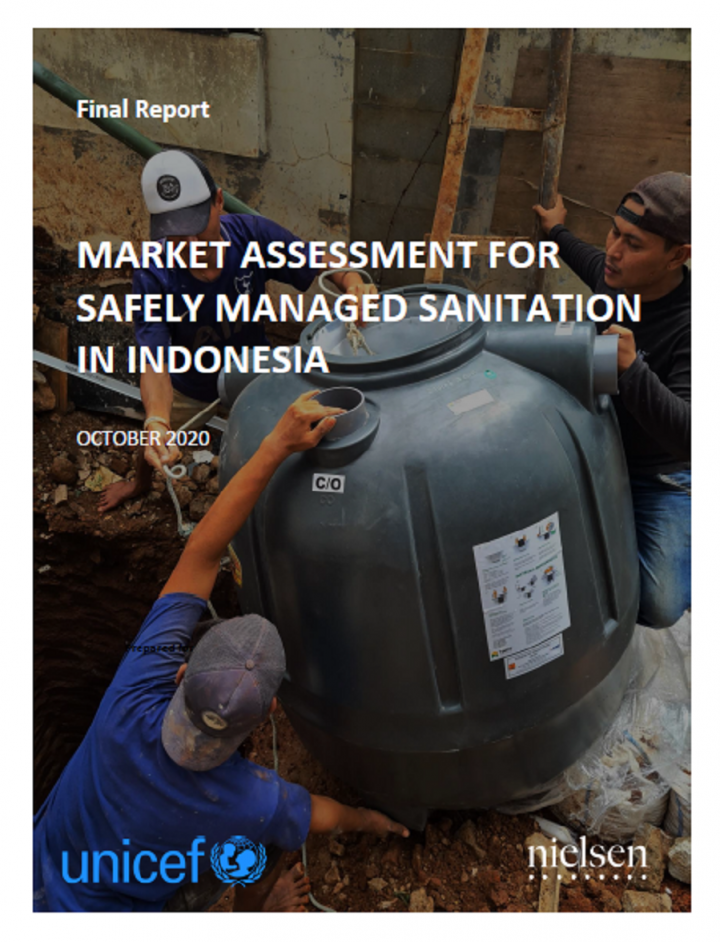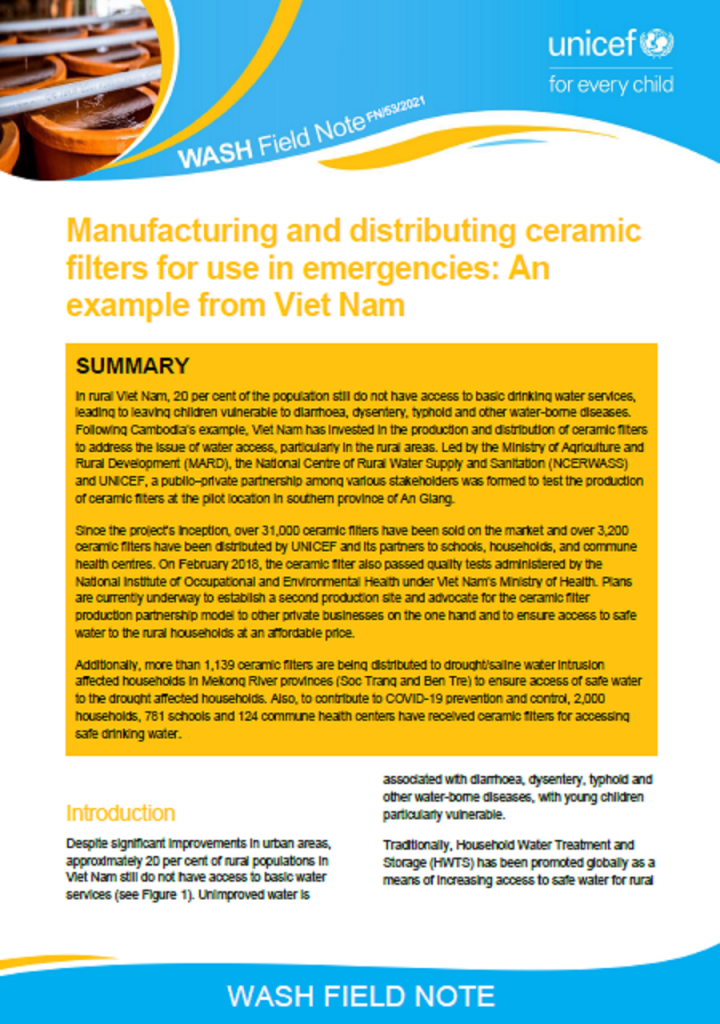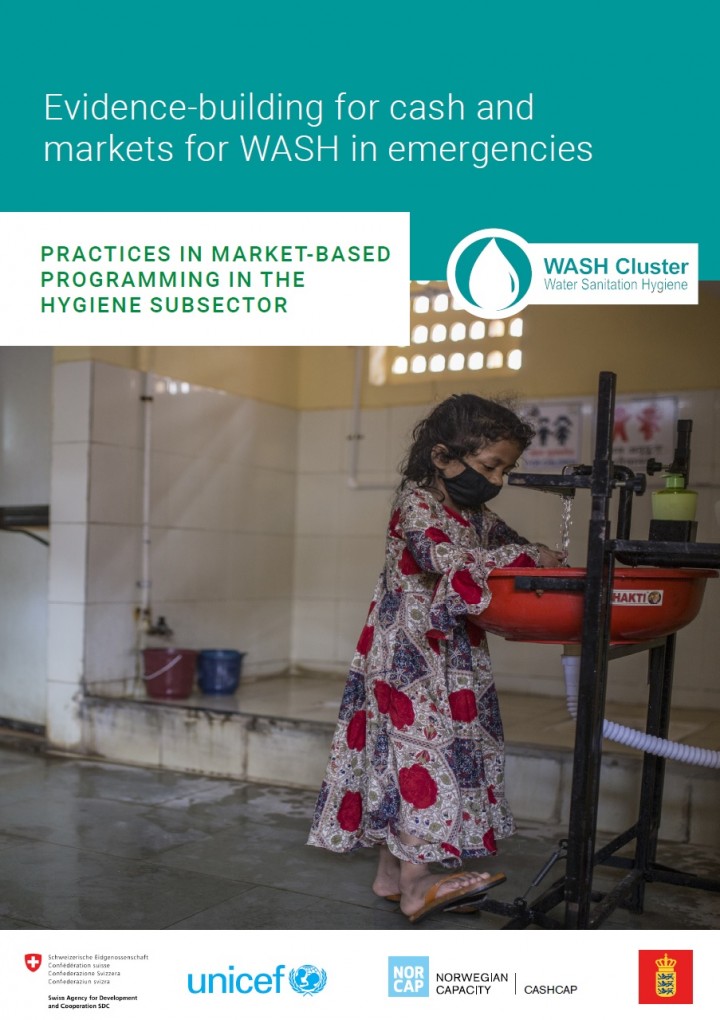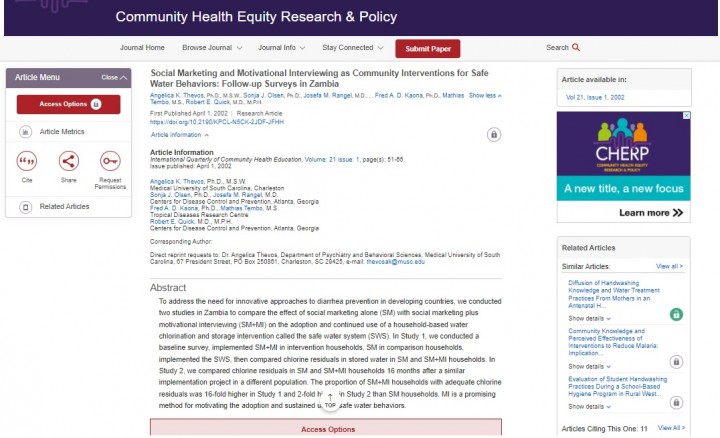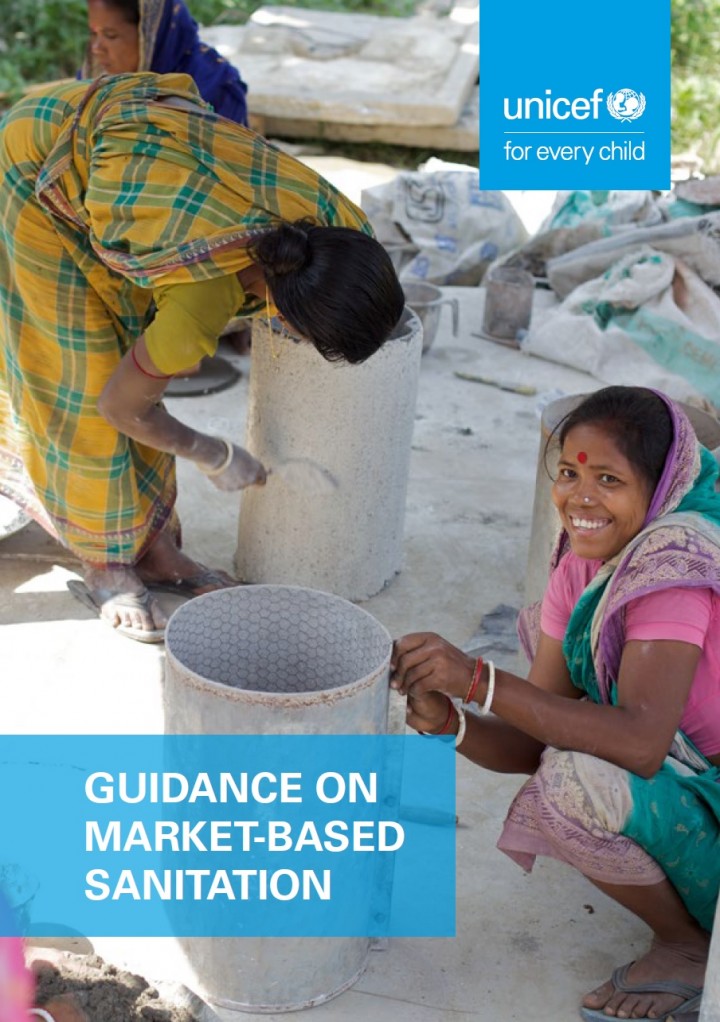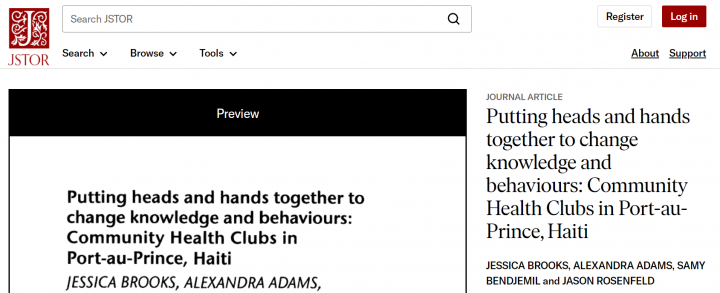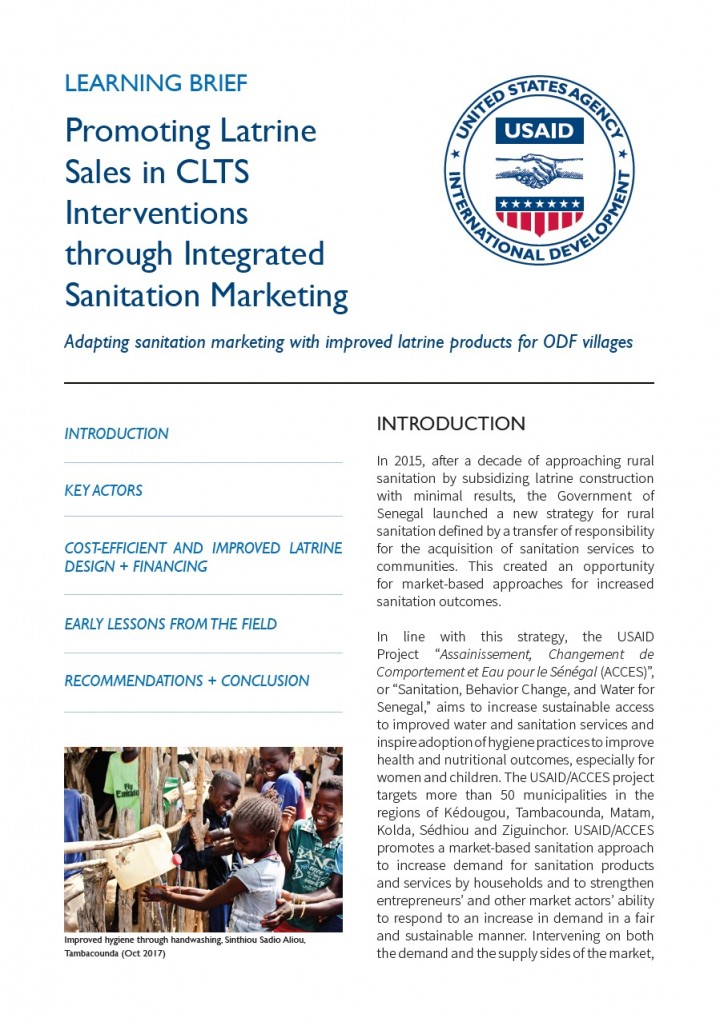USAID Urban Resilience by Building and Applying New Evidence in Water, Sanitation, and Hygiene (URBAN WASH) (2023) The Role of Small, Local Service Providers in Inclusive Citywide Water and Sanitation
In low- and middle-income country (LMIC) contexts such as Sub-Saharan Africa and South Asia, between 44% to 51% of urban populations are unserved by piped water and 72% to 84% lack sewered connections1,2,3,4,5. A significant proportion of this population is likely served by small, local providers (SLPs). Despite the ubiquity of SLPs, existing programs and studies largely ignore the impacts these stakeholders have on service […]
Om Prasad Gautam, Babazile Bhembe, Lindsay Denny, Lara Kontos, Joana Da Cunha Forte, Golam Muktadir and John Knight (2024) Technical guide for handwashing facilities in public places and institutions
Hand hygiene is a key line of defence for many diseases, including diarrhoea and cholera. To maintain good hand hygiene and get more people into the habit of regularly washing their hands, public handwashing facilities with soap and water are essential. For many years, we have worked with governments, UNICEF and other organisations to install handwashing facilities in a range of public places and buildings, including […]
Rishi Agarwal, Subhash Chennuri, and Aaron Mihaly, FSG (2018) Scaling Market-Based Sanitation Desk Review on Market-Based Rural Sanitation Development Programs
This desk review from the USAID/WASHPaLS project investigates the current state of knowledge in market-based sanitation (MBS) and establishes a framework to analyze, design, and improve MBS interventions. This report is based on a survey of approximately 600 documents on MBS, in-depth research into 13 MBS intervention case studies across the global south, and interviews with sector experts and program personnel. This review offers a framework […]
Crystal Huang, Chau Hoang, Steven Walker, Estelle Plat, Carolien van der Voorden (2023) The use of subsidies in an area-wide sanitation approach Overview and evidence gaps
Hardware subsidies used to be commonplace policy tools for expanding sanitation access in rural areas. Overtime, however, hardware subsidies were found to produce distortionary effects on sanitation markets and failed to achieve sustained latrine usage and hygienic behaviors, and therefore declined in popularity in the mid-2000s. However, “no subsidy” approaches are not sufficient either, in improving sanitation outcomes. This review, produced by USAID’s WASHPaLS #2 […]
Rishi Agarwal, Subhash Chennuri (2024) Business Models for Rural Fecal Sludge Management (FSM)
Over the last decade, basic sanitation coverage in rural areas of low- and middle-income countries has progressed significantly, especially in Asia. Sustaining those resulting gains in human, environmental, and community health, all while progressing toward targets of Sustainable Development Goal 6, requires safely managing the fecal sludge generated in on-site sanitation systems. When latrines are full, some households abandon them and build anew, while others choose […]
Crystal Huang, Chau Hoang, Steven Walker, Estelle Plat, Carolien van der Voorden (2023) The use of subsidies in an area-wide sanitation approach Overview and evidence gaps
Hardware subsidies used to be commonplace policy tools for expanding sanitation access in rural areas. Overtime, however, hardware subsidies were found to produce distortionary effects on sanitation markets and failed to achieve sustained latrine usage and hygienic behaviors, and therefore declined in popularity in the mid-2000s. However, “no subsidy” approaches are not sufficient either, in improving sanitation outcomes. This review, produced by USAID’s WASHPaLS #2 […]
ENPHO (2023) SFD (level 2) Report - Jaleshwar Municipality, Nepal
Jaleshwar Municipality is in Mahottari District, Madhesh Province of Nepal. It has a total of 12 wards and covers an area of 44.72 square kilometres. It shares its boundary with Mahottari District and Pipra Rural Municipality in the north, Sitamadi District of neighboring country India in the south, Matihani Rural Municipality in the east and Ekdara Rural Municipality in the west. According to the national […]
ENPHO (2023) SFD (level 2) Report - Banepa Municipality, Nepal
Banepa Municipality is located in Kavrepalanchok District, Bagmati Province of Nepal. It has 14 wards and covers the area of 54.59 sq km. It is surrounded by Panauti Municipality in the south, Mandandeupur Municipality in the north, Dhulikhel Municipality and Panchkhal Municipality in the east, and Bhaktapur District in the west. The municipality has urban and rural settlements. Particularly, ward numbers 7, 8 and 9 […]
World Bank Group (2021) Menstrual health and hygiene resource package: tools and resources for task teams
The purpose of this resource package is to assist World Bank task teams in ensuring that their projects are inclusive and responsive to the needs of women and girls. The tools included in this package are practical and user-friendly and guide task teams on how to design and monitor effective, inclusive, and sustainable menstrual health and hygiene (MHH) initiatives as part of their water supply, […]
UNICEF (2022) Using Product and Consumer Research Data to Inform Hand Hygiene Programming
Hand hygiene programming contributes to the prevention of infections including pneumonia, diarrhoea, and COVID-19 (CDC, 2020) amongst others. Various campaigns and tools have triggered hand hygiene behaviour change, and these approaches can rapidly support increased demand for soap. However, the supply side of hand hygiene service provision has received comparatively less attention to date. This paper discusses the global potential of using market data and […]
UNICEF (0) Hand Hygiene Market Assessment - A practical guidance for UNICEF country offices in South Asia
This document aims to be a guide, and a starting point for hand hygiene market assessments for ROSA Country Offices. The information here is based on previous UNICEF market assessments, market mapping toolkits, technical briefs, and field note learnings listed in the footnotes and the reference section.
(2022) SFD Intermediate Report - Dipayal Silgadhi Municipality, Nepal
Dipayal Silgadhi municipality is the district headquarters of Doti District in Sudurpashchim Province of Nepal. The former district headquarters of Far Western Development Region, Dipayal Silgadhi lies in the lesser Himalayas on the bank of Seti River at 29°16′N 80°56′E. The municipality comprises nine wards, the smallest local government unit. (Municipality, 2018). The total population of the municipality is 32,941, with male and female population percentage […]
UNICEF (2022) Managing Periods During the COVID-19 Pandemic Amongst the Ethnic Communities in the Chittagong Hill Tracts, Bangladesh
Considering the COVID-19 pandemic and the urgent needs of adolescent girls in the Chittagong Hill Tracts (CHT), a pilot intervention on sexual and reproductive health and rights (SRHR) and menstrual hygiene management (MHM) has been carried out by a collaboration of the Child Protection and WASH sections at the UNICEF Chattogram Field Office in Bangladesh. Partnering with the Sustainable Social Services in Chittagong Hill Tracts […]
UNICEF, nielsen (2020) Market assessment for safely managed sanitation in Indonesia
Realizing its commitment to providing universal access to sanitation, the Government of Indonesia aims to shift from open defecation free into safely managed sanitation as the national plan for sanitation is targeting to provide 15% of the population with access to safely managed sanitation. Based on the Statistics Bureau, in 2019, there are 77.44% households that have access to sanitation in Indonesia with 7.5% of […]
IOD PARC (2022) Manufacturing and distributing ceramic filters for use in emergencies: An example from Viet Nam
In rural Viet Nam, 20 per cent of the population still do not have access to basic drinking water services, leading to leaving children vulnerable to diarrhoea, dysentery, typhoid and other water-borne diseases. Following Cambodia’s example, Viet Nam has invested in the production and distribution of ceramic filters to address the issue of water access, particularly in the rural areas. Led by the Ministry of […]
Barbiche, J.C., Collins, O. (2020) Evidence-building for Cash and Markets for WASH in Emergencies Practices in Market-Based Programming in the Hygiene Sub-Sector
This report presents an overview of practices related to the use of market support and cash and voucher assistance (CVA) modalities for hygiene in humanitarian crises. These market-based approaches can have a number of advantages, such as improving the efficiency and effectiveness of emergency hygiene response while also supporting the existing local market systems that will continue to deliver hygiene items and services long after […]
Thevos, A., Olsen, S. Rangel, J. M., Kaona, F. A. D., Tembo, M., Quick, R. E. (2002) Social Marketing and Motivational Interviewing as Community Interventions for Safe Water Behaviors Follow-up Surveys in Zambia
To address the need for innovative approaches to diarrhea prevention in developing countries, we conducted two studies in Zambia to compare the effect of social marketing alone (SM) with social marketing plus motivational interviewing (SM+MI) on the adoption and continued use of a household-based water chlorination and storage intervention called the safe water system (SWS). In Study 1, we conducted a baseline survey, implemented SM+MI […]
UNICEF (2020) Guidance on Market-Based Sanitation
One of the key programming approaches adopted in UNICEF’s Strategy for WASH (2016-2030) is to build sustainable markets for sanitation goods and services. Market-based sanitation (MBS) is defined as a development approach to improve sanitation in a country by building the sanitation market of goods and services for which the customer makes a full or partial monetary contribution (with savings and/or cash equivalents) toward the […]
Brooks, J., Adams, A., Bendjemil, S., Rosenfeld, J. (2015) Putting Heads and Hands Together to Change Knowledge and Behaviours: Community Health Clubs in Port-au-Prince
Although interventions that emphasize the role of knowledge in invoking behaviour change have recently become unpopular, the Community Health Club (CHC) model has demonstrated how group knowledge, consensus building, and peer pressure can be applied to achieve hygiene behaviour change. To date, the model has predominantly been implemented in rural settings, with limited testing in urban communities. In 2012, CHCs started in Haiti as a […]
USAID (2020) Promoting Latrine Sales in CLTS Interventions through Integrated Sanitation Marketing Learning Brief
In 2015, after a decade of approaching rural sanitation by subsidizing latrine construction with minimal results, the Government of Senegal launched a new strategy for rural sanitation defined by a transfer of responsibility for the acquisition of sanitation services to communities. This created an opportunity for market-based approaches for increased sanitation outcomes. In line with this strategy, the USAID Project “Assainissement, Changement de Comportement et […]
